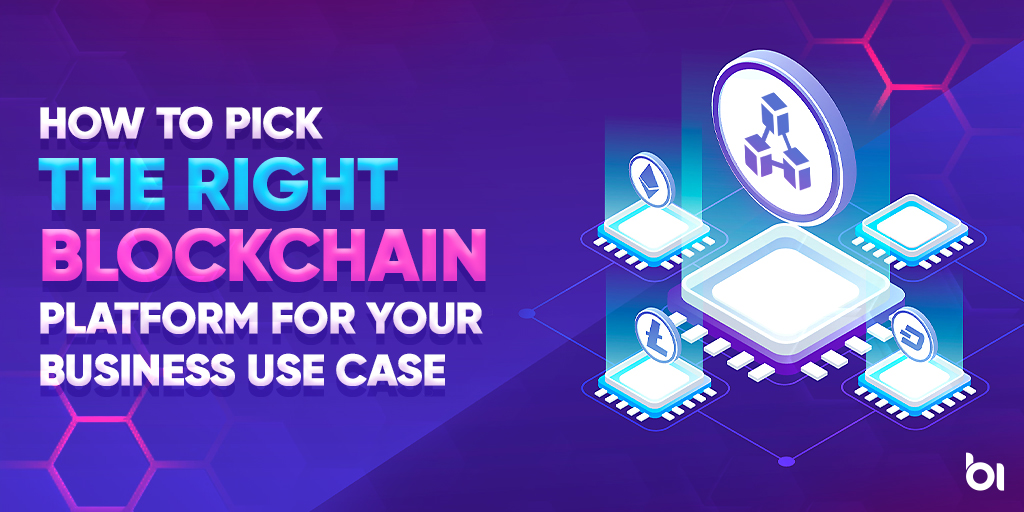Let’s first discuss, the use cases for the blockchain.
What are the use cases for the blockchain?
Blockchain technology can be used to build a wide range of products and services. The key feature that differentiates blockchain from other traditional technologies is distributed ledger technology. A technology that tracks and documents the transfer of value in a trustless, immutable way, hence the name blockchain.
This technology has been used in the financial industry for some time. The traditional financial processes, from the way they are done and the processes involved, are very much the same for blockchain technology, such as:
- Ledgers
- Tokenisation of assets and transfers
- Verification
- Decentralization
- Immutability
Read Also: Top 5 Blockchain App Development Tools in 2022 & Beyond
Transactions can be transparent and immutable, allowing the tracking of every single transaction, which can prove to be a very powerful tool.
One of the areas that which blockchain technology will be implemented in the financial industry. The use cases in this domain are wide-ranging and are still evolving. Some of the key use cases for blockchain technology are as follows:
Use Cases for Blockchain Technology
Cryptocurrencies and FinTech: Cryptocurrencies are a part of blockchain technology that makes use of the blockchain network to create and transfer assets.
The cryptocurrency market is worth billions, and it is a growing industry that is looking to improve upon its current method of exchange. This is why a lot of different blockchain solutions are currently being built to cater to the needs of cryptocurrencies.
FinTech is a financial technology use case that is related to cryptocurrency and blockchain. The industry is still not as popular as banks or cryptocurrency companies, but the technology is rapidly growing and will continue to grow.
We see FinTech as a technology that could completely change the way we do business in the future, and it is the perfect time to make sure you are taking advantage of this technology.
Blockchain for security: One of the main benefits of blockchain technology is its ability to maintain immutability. This is what makes it different from other databases that can get corrupted. But this comes with a downside; it makes it very difficult to update the record when changes need to be made.
Distributed Data: This use case revolves around the sharing of data across multiple entities without the need for a single, centralized point of storage.
Insurance: The insurance industry is moving from a paper-based system to a more digitized system. Blockchain technology is an ideal way to store documents and provide traceability.
Banking: Blockchain technology is used for the issuance and settlement of financial products such as securities, currencies, and commodities.
Government: Blockchain technology allows for the validation of votes, the creation of smart contracts that reduce the cost of issuing contracts, and the transfer of ownership of digital assets.
Read Also: Top 5 Ethereum Development Tools To Create Dapps
How to choose the right blockchain platform?
Firstly, you need to define your blockchain technology solution requirement before you look for a blockchain solution. The type of blockchain you are looking for depends on your requirements and the features of blockchain you need to solve your business challenges.
To choose the right blockchain platform, you must first know the type of blockchain solution you require.
A blockchain platform is broadly classified into Public Blockchain and Private Blockchain. Public Blockchain is a platform built by a third party, which is widely used by users. Private Blockchain is a platform built on blockchain technology by a single business.
If you are looking for an open network that allows users to connect to share their data and create their applications, you need to look at the public blockchain networks.
If you want to use a private blockchain for a closed network where you need to share certain data, you will need to look at the private blockchain networks.
The 5 key factors to choose the right blockchain platform
#1: Decentralized consensus algorithm
Blockchain platforms depend on a decentralized consensus mechanism, where transactions are stored across a network of nodes, rather than on a central server.
Consensus means “agreement” and is often confused with decentralization, which is when transactions are distributed across multiple nodes.
With distributed or decentralized consensus mechanisms, the consensus is achieved through the network and, thus, no central operator (or nodes) is needed to get the consensus. This makes the system inherently more secure.
#2: Public vs private Blockchain
A blockchain is public if everyone in the network has access to all transactions in the ledger. A blockchain is private if only the owner(s) can see all transactions.
Private blockchains can have a hybrid structure, in which transactions are private for selected members, or the ledger is shared with the public but transactions cannot be accessed outside the network.
#3: Scalability
The more the transactions are, the more transactions can be stored in the ledger and it is a challenge to keep a balance between scalability and transaction speed.
This is more acute in the case of public blockchains that are subject to network bandwidth limitations. A blockchain with very high transaction rates will likely be less attractive to businesses.
#4: Access
As an open-source blockchain platform, it must be free of any restrictions, which may have a bearing on whether a developer chooses it. The platform should be easy to use and accessible to all users. Developers will make their choice based on these criteria.
A private blockchain will have the advantage of being more tightly controlled and secure. But this may also be a deterrent for developers.
#5: Community involvement and adoption
A good platform will get adoption by users. The platform should be easy to use and developers should be willing to support the platform and build applications on it. It should not be something that will remain a niche product.
With private blockchains, it is important to get other users to adopt them. This may be difficult given the closed nature of such platforms and that many developers may find them difficult to use.
Conclusion
Blockchain technology is a very different space to choose from, depending on your needs and requirement. Each platform has its advantages and disadvantages. Choosing the right blockchain platform can be tricky. That is why it is important to understand what is blockchain technology that you need and who can provide it. This will guide you in choosing the right blockchain platform.




